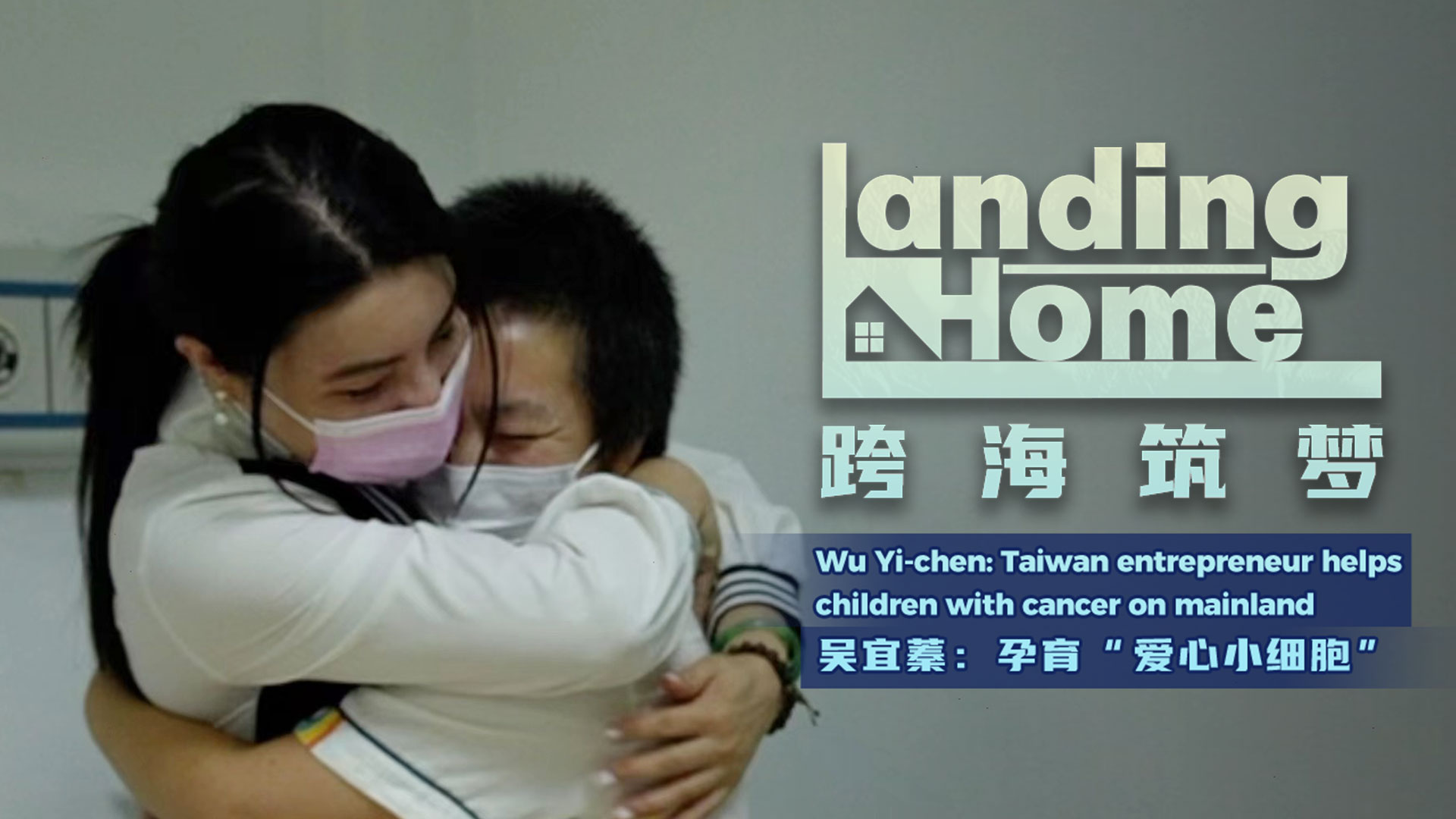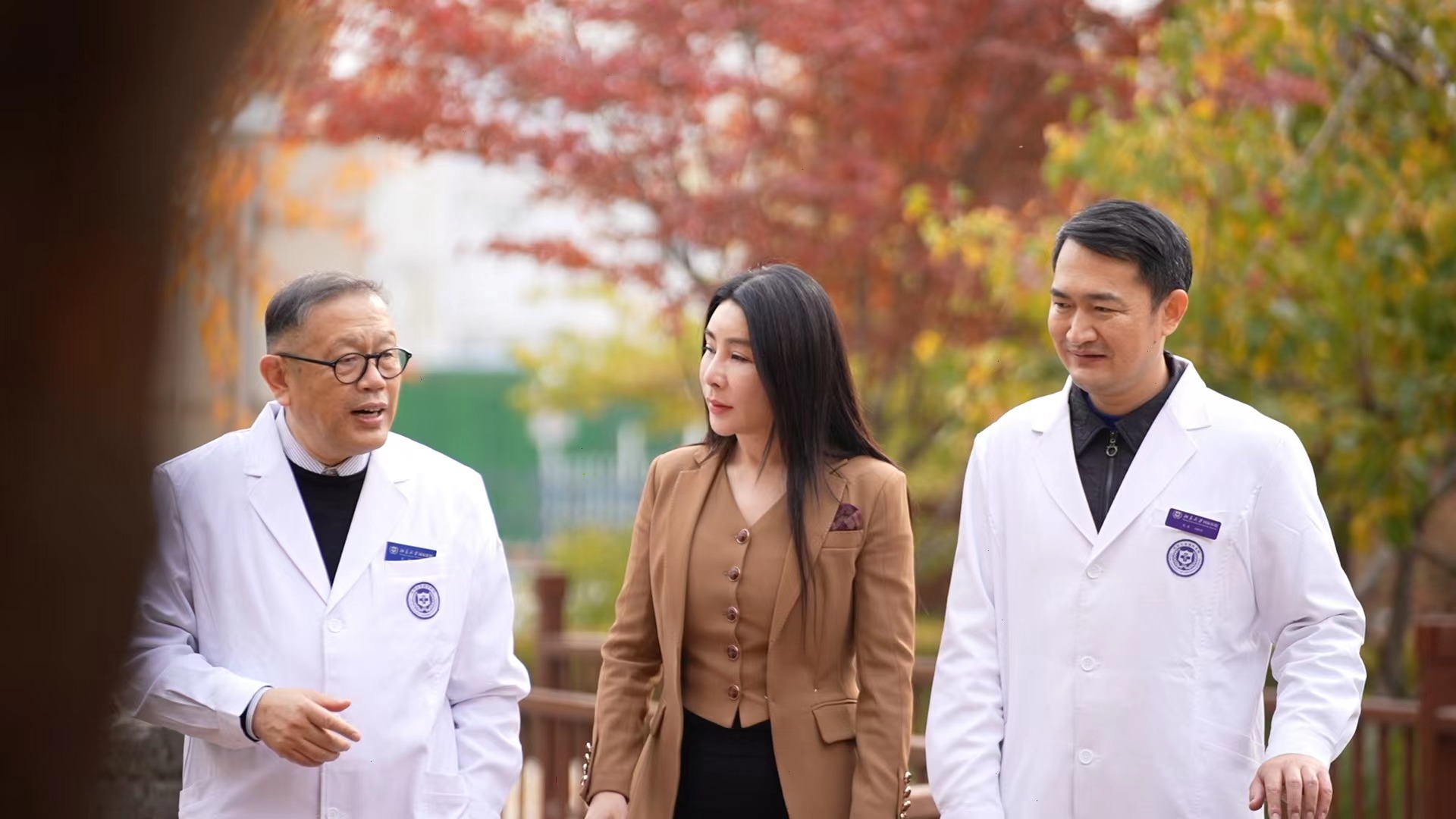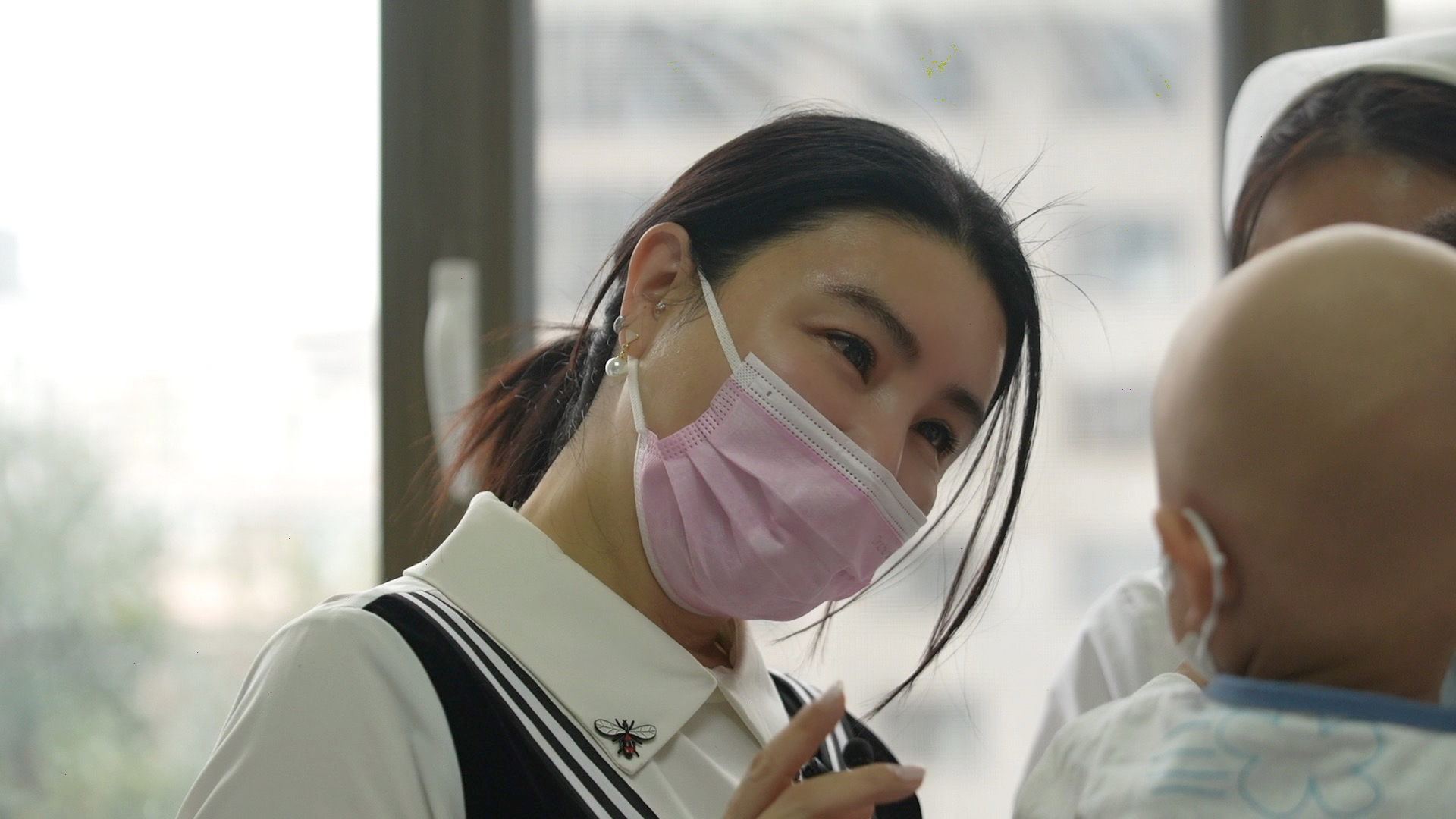08:12

Editor's note: CGTN's series "Landing Home" profiles young adults from China's Taiwan Island who live, study and work on the Chinese mainland. Chasing their dreams across the Taiwan Straits, they are professionals from all walks of life. The series spotlights their stories in, hopes for and contributions to their new home.
The "ridiculous memory" of her very first visit to the Chinese mainland in 2006 remains fresh for Wu Yi-chen, a Beijing-based entrepreneur from China's Taiwan region.
"Before my departure, I packed dozens of boxes of daily necessities including toilet paper and shampoo, because I had no idea if I could find them in Shanghai," Wu recalled.
"And obviously, I was wrong. This shows the lack of information across the Taiwan Straits at the time," she said.
Born in Taipei City, Wu has a personal bond with the mainland. She spent her childhood listening to her father narrating the beauty of Shanghai or the splendor of the West Lake in east China's Hangzhou City, where her grandfather was born.
After completing her master's degree in the U.S., Wu started her first job at a bank. As part of the staff rotation in 2006, when Wu was offered a choice between Dubai and Shanghai, she made an easy decision. "I chose Shanghai without hesitation because the mainland is my dreamland," Wu said.
Life happens
In 2009, when Wu could see spending the rest of her life in the financial industry, life took a turn – her father died just five months after being diagnosed with lung cancer.
"At that time, I was very sad and I realized that life is short and health is very important," said Wu.
The next year, Wu met a group of American scientists who shared with her that cancer cannot only be treated with chemotherapy and surgery, but also with biotherapy.
This interested Wu so much that she began focusing all her energy to biotechnology and healthcare.
In 2012, Wu decided that it was time to quit her job and go all in. She took over the management of Sino-American Biotech, a Hong Kong-based company that engages in immune and stem cells storage and clinical research.

Wu Yi-chen (C) talks with Liang Jun (L), vice president of Peking University International Hospital, and Liu Yang, Party Secretary of Peking University International Hospital, at Zhongguancun Life Science Park, Changping District, Beijing, China. /CGTN
Wu Yi-chen (C) talks with Liang Jun (L), vice president of Peking University International Hospital, and Liu Yang, Party Secretary of Peking University International Hospital, at Zhongguancun Life Science Park, Changping District, Beijing, China. /CGTN
The experiences in Beijing
In 2015, Wu and her team decided to set up the headquarters of their company's mainland business in Beijing's Changping District. What attracted them were governmental support and abundant human resources in the capital city.
"The local government even offers a 'service kit' for enterprises," said Wu, explaining that in case of difficulties they can directly ask help from the government, which responds promptly.
"It's very important to have the government at your back," Wu said.
According to Wu, her company often communicates and cooperates with other companies in Zhongguancun Life Science Park, which houses nearly 600 biopharmaceutical companies.
"Our company and the Peking University International Hospital both research on cancer, so we have close academic exchanges," Wu said, adding that she often invites experts from across the Taiwan Straits for exchanges.
"When cross-Strait enterprises join hands in biotechnology research and development or clinical research, I believe together we can lead the world," Wu said.
Party Secretary of Peking University International Hospital Liu Yang echoed Wu. "The sci-tech cooperation is the bridge and bond linking us. I hope Ms Wu could build a channel for us to undertake exchanges with our counterparts in Taiwan region."

Wu Yi-chen chats with a child diagnosed with leukemia. /CGTN
Wu Yi-chen chats with a child diagnosed with leukemia. /CGTN
Cancer treatment
Besides her pursuits in biotechnology, Wu also helps treat children diagnosed with leukemia from underprivileged families on the mainland. And it all started with a boy named Haoyu.
"It happened very suddenly when a doctor surnamed Luo called me to ask if I could help a boy (named Haoyu) struggling with leukemia. He was just over a year old and would have died in just three months as his family could not afford his treatment," Wu recalled.
"Without hesitation, I offered my help," Wu continued.
After a visit to Haoyu at the hospital, Wu and her team decided to set up a project named "Little Cells of Love" in 2013 to aid underprivileged children suffering from leukemia. Since then, the project has helped save 279 children.
"We do not have the strength to save so many children, but we are trying our best," Wu said.
The project not only raises funds but also people's awareness of bone marrow transplantation. Bone marrow donation nowadays has become similar to blood donation thanks to advanced technology, Wu explained.
"Peace across the Taiwan Straits benefits all. Many people ask me if there are differences between the people in Taiwan region and the ones on the mainland. I have never felt we are different. We are all Chinese," Wu said.
Reporters: Shi Chan, Yao Yao
Video director: Shi Chan
Scriptwriter: Yao Yao
Video editor: Shi Chan
Copy editor: Moosa Abbas
Photographers: Han Xu, Zhang Lu
Cover photo designer: Li Wenyi
Project manager: Wang Yulian
Chief editor: Chen Ran
Supervisor: Zhang Shilei